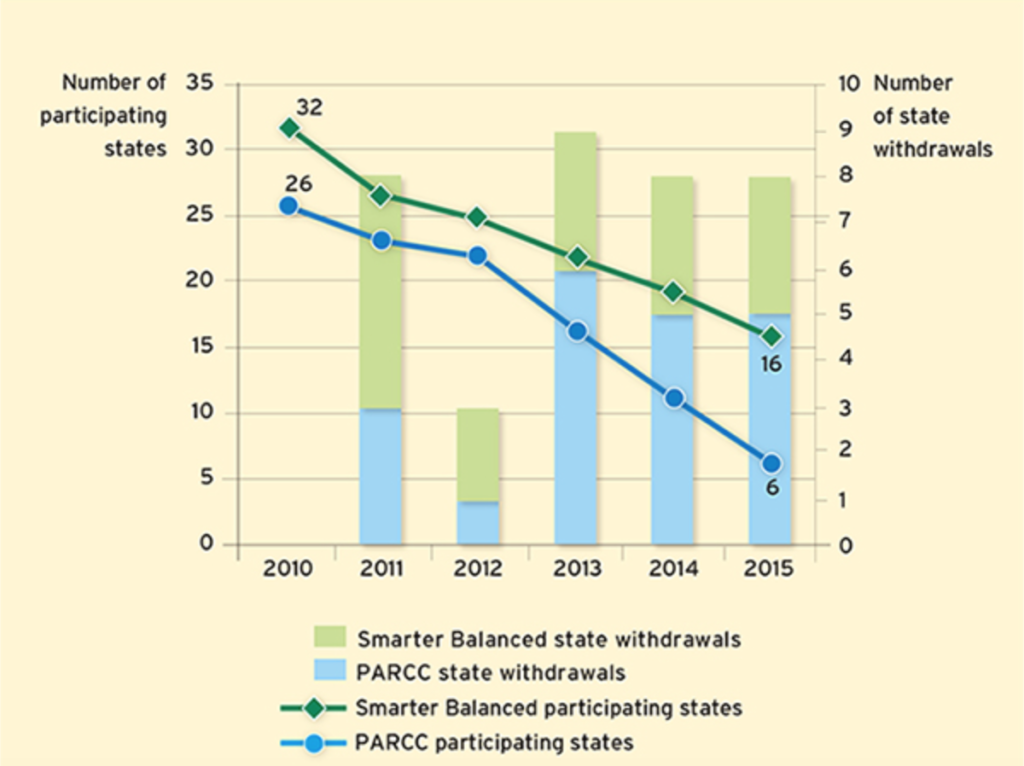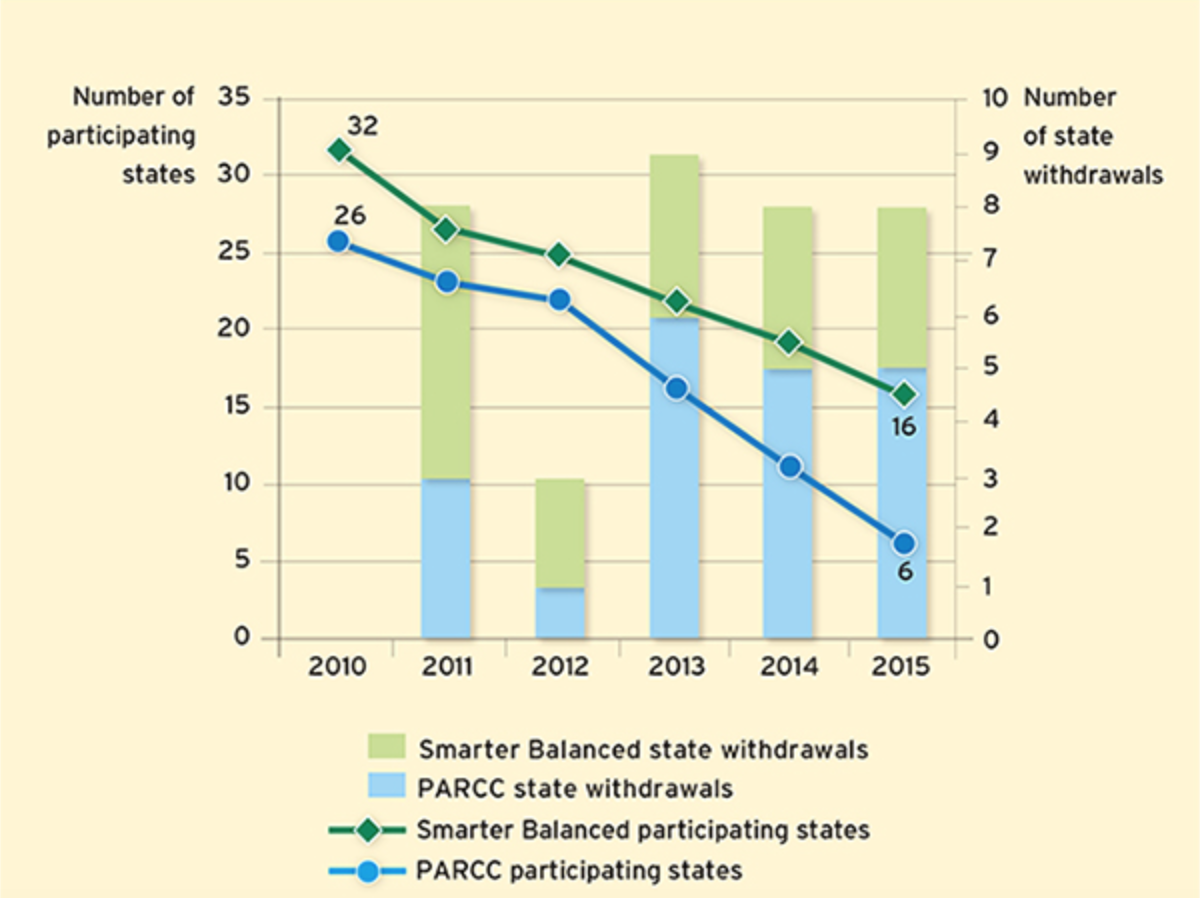The Common Core State Standards Initiative was designed to solve a problem that has plagued past standard-setting efforts. Many states responded to earlier efforts by watering down their standards for learning and lowering expectations for students in an attempt to artificially boost the number of students that reached proficiency. By creating a set of common expectations across states, the designers of the Common Core sought to protect the initiative from the inevitable political pressures that might lead policymakers to weaken the standards or the aligned assessments.
However, history may be set to repeat itself. While most states have stood firm in their embrace of the new standards, the number of states planning to use the aligned assessments dropped from 45 in 2011 to 20 by mid-2016.
In a new article in Education Next, we examine why states have abandoned the assessments (designed by the federally funded Smarter Balanced Assessment Consortia (SBAC) and Partnership for Assessments of Readiness for College and Careers (PARCC)) even as they continue to embrace the standards on which the assessments are based. The answer, in short, is politics. It’s easy for policymakers and the public to embrace high standards in principle. But when policymakers seek to hold students, teachers, and schools accountable for those standards by using the results from aligned assessments, support is far more likely to falter.
The key question for policymakers and other advocates for standards-based reform is whether the politics can be overcome or, at least, mitigated. Three sets of problems define the challenge of aligning expectations for students with accountability for results:
- Implementation problems and teacher capacity: The new assessments set forth more challenging proficiency benchmarks for students and required substantial investments in technology, as well as increased testing time. Lamenting schools’ preparedness for the transition, one teacher tweeted, “We start testing on standards we’re not teaching with curriculum we don’t have on computers that don’t exist.”
- Resistance to making standards consequential: When Common Core and the aligned assessments were launched in 2010, states were also busy adopting ambitious new teacher evaluation systems and refashioning the ways in which they held local schools and districts accountable. This resulted in the assessments getting caught up in broader pushback against testing and in charges that students, teachers, and schools were being held accountable for something that had not yet been fully implemented.
- Failure to engage key stakeholders: The groups that would ultimately experience the reforms—students and their parents or guardians—were often left to learn about the standards and assessments via their social networks, where ill-informed but powerful negative examples circulated through social media. This substantially undermined policymakers’ support for the assessments among key constituencies.
One might take the challenges faced by the consortia-designed assessments as evidence of the impossibility of creating meaningful standards for which educators and students can be held accountable. But our analysis reveals that states can mitigate some of the pushback by anticipating implementation problems and making stakeholder engagement a priority.
States have already begun to adjust their approach to implementation by “pausing” accountability for teachers and schools until the new standards are fully implemented. The consortia too have adjusted their approach, providing states with more flexibility around administration and adjusting the assessments based on feedback from families and teachers.
Many of the states we studied viewed their abandonment of the consortia-designed assessments as the price to pay for saving the standards. Only time will tell if these efforts are too little, too late and whether alternative Common Core assessments will reach the goals set out by the designers of the initiative. Regardless of what happens, the experience provides much fodder from which states and advocates can learn as they continue to push for high standards and accountability for results.





